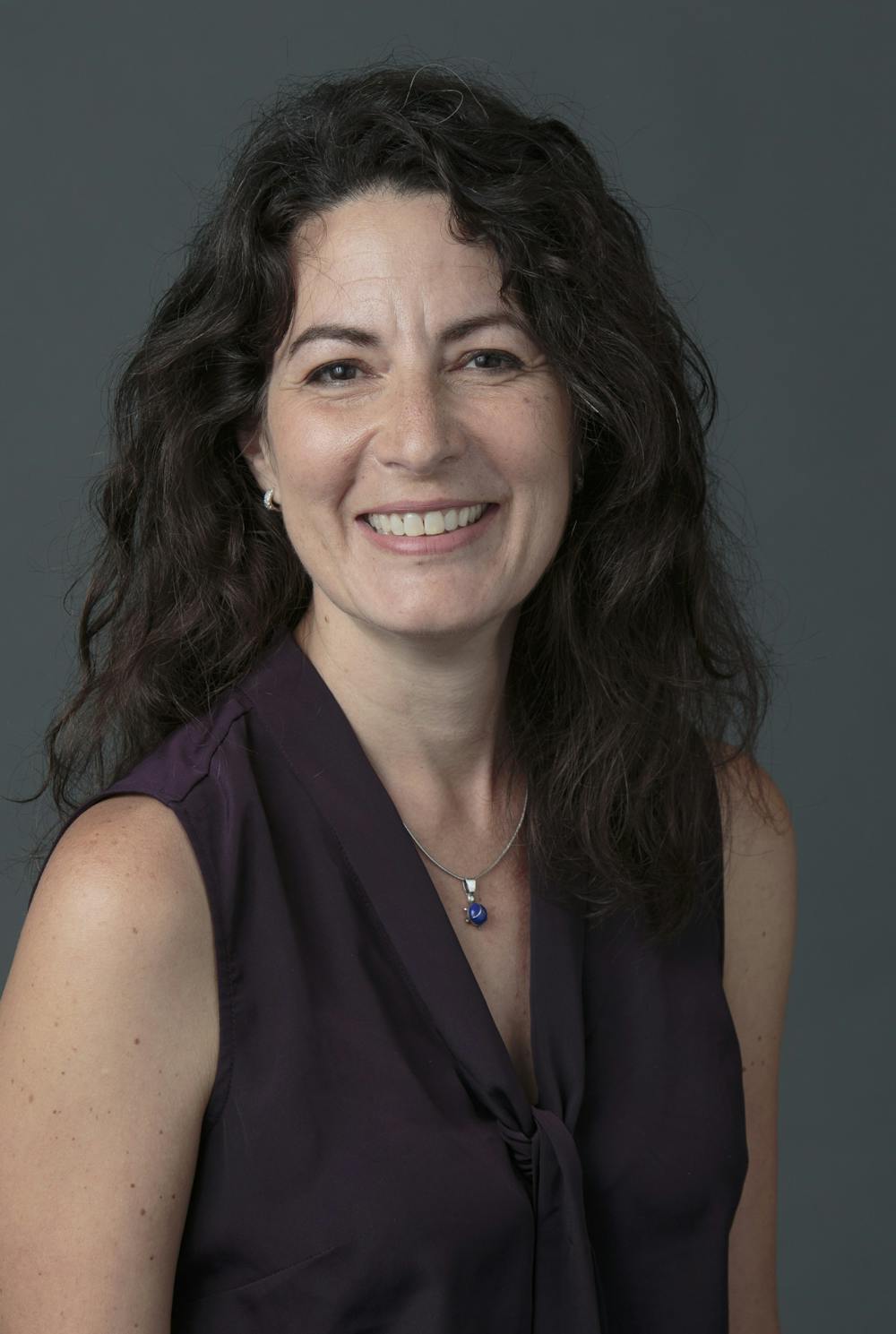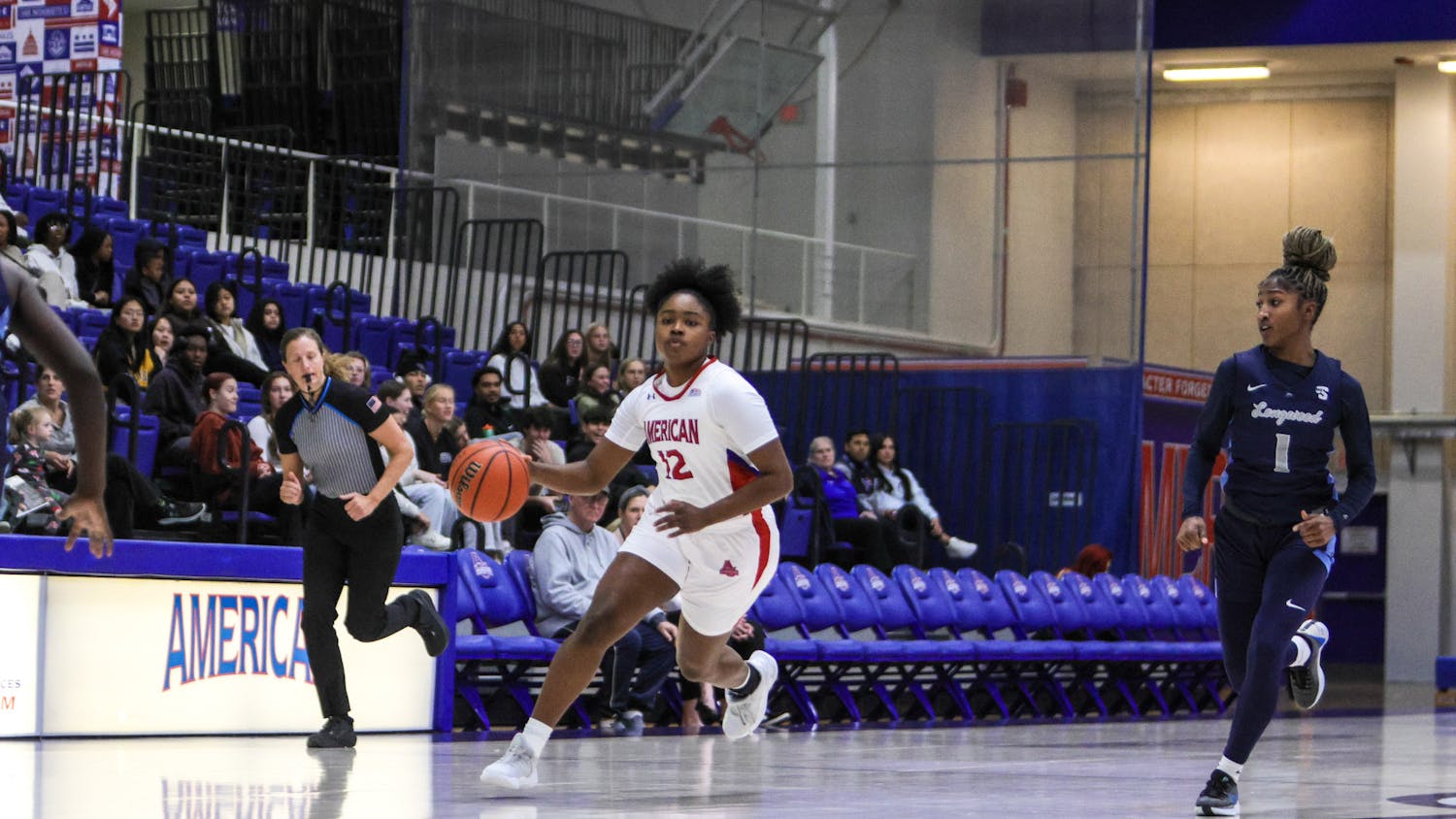The following piece is an opinion and does not reflect the views of The Eagle and its staff. All opinions are edited for grammar, style and argument structure and fact-checked, but the opinions are the writer’s own.
On April 21, shortly after the American University Student Government passed an Israel divestment resolution, University President Sylvia Burwell issued a statement announcing that the resolution would not be implemented because it would “threaten academic freedom, the respectful free expression of ideas and views, and the values of inclusion and belonging that are central to our community.”
Her stated support for academic freedom is most welcome — but it is also an apparent 180-degree turn from the president’s position in January when she unilaterally abridged speech and assembly rights for everyone in the community. Our campus chapter of the American Association of University Professors, whose primary missions are academic freedom and shared governance, issued a statement in January that explained why her actions were inimical to the academic freedom she would embrace in her April 21 email.
As someone who studies and writes about dialogue across differences, I sincerely believe that all of us can change. We can all learn from our mistakes, from our studies and from each other. But I remain concerned that we all — including our leaders — have much more learning to do.
I have been teaching constitutional law in the School of Public Affairs for 10 years, and since 2017, my focus has increasingly been on academic freedom and campus speech. Coming from a career as a civil rights advocate, I have a commitment to free expression that I’ve found my students haven’t always shared and a commitment to direct action and protest that I find faculty and administrators haven’t always shared.
After our University president abridged speech rights in January, I saw a major shift in our students’ understanding of free speech rights. Faced with institutional suppression of their advocacy or their classmates’ good-faith political speech, many students spoke up for free expression. That included SG, which issued what I think was a principled rebuke to efforts to silence them.
Yet these objections (along with a faculty senate resolution) went unanswered, and we have been under a pall of censorship for three months.
Then, SG passed a divestment resolution, and the president responded. One part of the resolution would indeed impair academic freedom. It reads: “the American University Student Government calls upon the American University to discontinue and prohibit its financial allocations given toward platforming or hosting speakers, events, organizations, contractors, or products which, either materially or ideologically, propagate and/or further the active destruction of Palestinian life and land and the genocide ongoing in occupied Palestine.”
As I read it, this resolution would prevent individual faculty members and programs, including academic programs, from deciding whether to invite speakers. The “materially or ideologically” language could potentially mean that the Chemistry Department was barred from hosting a chemist who, in her outside political life, is a member of a pro-Israel group. Or prevent the Sine Institute from having a fellow who has worked for the U.S. Department of State or Department of Defense and enforced or implemented the Biden administration’s pro-Israel policies.
As a free speech advocate, I wish SG hadn’t advocated for a speaker ban. But they had the civic and academic freedom to do so. Indeed, they have apparently learned a message that came straight from the top: censorship is a valid policy alternative at American University. Why shouldn’t they propose censorship when they have been told for three months that censorship is sometimes necessary to promote inclusion?
I’m a teacher, so when I see student advocacy in my area of study, I’m inclined to be in conversation with students about the strengths and weaknesses of their proposals. I hope this piece serves as an invitation to have such discussions.
But our president did not engage in any such dialogue, choosing instead to answer them with a resounding “no” that contradicts her prior approach to expression and that, I believe, is incomplete on the merits. While it’s true that a speaker ban threatens academic freedom, it is not obvious to me why financial divestment from companies such as Siemens, Raytheon and Northrop Grumman would do so. Nor did the president provide any explanation of why that would be so.
The administration’s curt response should dissatisfy resolution supporters and opponents alike: it neither engages with the merits of supporters’ concerns, nor creates a forum for opponents to make their own concerns heard. This is a lost opportunity to learn and to explore how we can do better.
So, it seems all of us are still on a learning curve at AU. The students’ freshly invigorated love for expressive freedom is a work in progress or potentially influenced by our institution’s situational commitment to speech.
Our president’s stated commitment to academic freedom does not appear to be backed up by the very reason we have academic freedom — a desire to engage deeply across disagreement in pursuit of answers to our most intractable questions.
I have great hope for our students, who I believe are acting in good faith and are motivated by a desire to do good in the world. This includes all students — including those who disagree with me and with each other about this University’s policies.
However, we cannot give them the education they deserve in the context of censorship and when leadership is unwilling to engage with them.
Lara Schwartz is a senior professorial lecturer in the School of Public Affairs and the director of the Project on Civic Dialogue at American University.
This piece was edited by Alana Parker, Jelinda Montes and Abigail Turner. Copy editing done by Luna Jinks, Isabelle Kravis and Charlie Mennuti.





